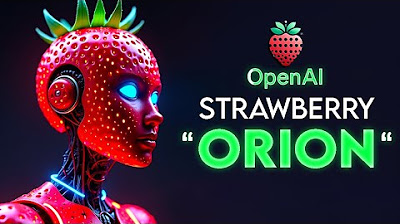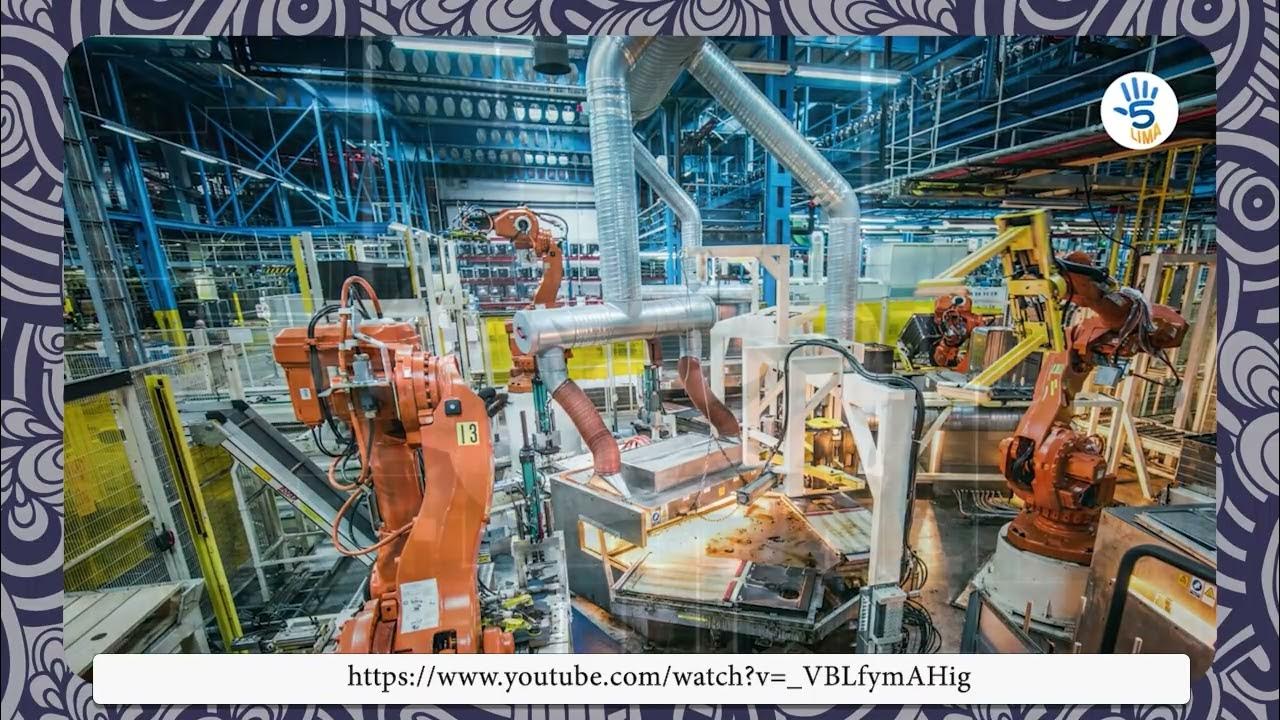How Smart Will AI Be in 2025
Summary
TLDRBy 2025, AI is poised to revolutionize various industries, solving complex problems and transforming everyday life. From personalized healthcare and education to autonomous robots and creative AI tools, the potential is immense. However, the rapid advancement of AI also brings ethical concerns, including privacy, job displacement, and bias. As AI becomes smarter, addressing these challenges is critical to ensure it benefits society responsibly. This video explores the exciting future of AI, its capabilities, and the important questions we must consider as we move closer to a more intelligent and interconnected world.
Takeaways
- 😀 AI is rapidly advancing and will solve larger global challenges by 2025, such as pandemics, climate change, and supply chain disruptions.
- 😀 Autonomous AI agents are expected to take on more complex tasks, like managing marketing campaigns and customer service, increasing workplace efficiency.
- 😀 Hyper-personalization through AI will transform sectors like healthcare, education, and entertainment, but it raises concerns about privacy and data security.
- 😀 Physical AI, such as robots in manufacturing, healthcare, and logistics, will become more widespread, but challenges around safety and ethics remain.
- 😀 AI's ability to co-create in the arts (e.g., generating music, art, and films) will continue to evolve, though debates around the authenticity of AI creativity persist.
- 😀 In healthcare, AI will revolutionize personalized medicine by analyzing genetic data and recommending tailored treatments, but ethical and privacy issues will need to be addressed.
- 😀 AI’s increasing role in creativity will pose challenges for industries that value human originality, such as publishing and entertainment.
- 😀 Bias in AI systems, particularly in hiring or lending decisions, is a major concern, requiring greater transparency and accountability in AI models.
- 😀 AI-powered surveillance technologies like facial recognition will become more pervasive, raising significant concerns about privacy and civil liberties.
- 😀 The possibility of AI surpassing human-level intelligence (the Singularity) remains speculative, but ongoing research into AI alignment will be critical to ensure its safety and ethics.
- 😀 As AI becomes more capable, the ethical governance of AI technologies, including regulations and frameworks, will be essential to ensure it benefits society responsibly.
Q & A
What is the expected role of AI in problem-solving by 2025?
-By 2025, AI is expected to tackle large-scale real-world challenges, such as analyzing climate patterns, supply chain logistics, and medical records. It will provide decision-makers with actionable insights during global crises, like pandemics or natural disasters, by simulating solutions in virtual environments.
What are the potential ethical concerns surrounding AI-driven problem-solving systems?
-One significant concern is ensuring AI systems remain unbiased. Poor quality or biased data used to train these systems can lead to flawed solutions, potentially overlooking important human or ethical factors.
How are AI agents transforming workplaces?
-AI agents, like OpenAI Codex, are already assisting with tasks such as coding and drafting emails. By 2025, they are expected to handle more complex processes, such as managing marketing campaigns, adjusting budgets, and optimizing strategies in real-time.
What challenges arise from increasing reliance on AI in workplaces?
-Increased reliance on AI agents raises concerns about job displacement and cybersecurity vulnerabilities. AI systems operate based on algorithms, and if manipulated, could lead to significant issues.
How will AI impact personalization in various sectors by 2025?
-By 2025, AI will significantly enhance personalization in areas like healthcare, education, and everyday convenience. For example, AI will offer personalized medical treatments based on genetic data and serve as personal tutors in education, adapting to each student's pace.
What privacy concerns are associated with AI-powered personalization?
-AI requires vast amounts of personal data to deliver tailored experiences, raising concerns about privacy and data security. Companies collecting sensitive information must ensure it is not misused or exposed to breaches.
What are the expected advancements in physical AI by 2025?
-Physical AI, including robots and autonomous machines, will become more prevalent. These systems will assist in industries like manufacturing, healthcare, and logistics. For example, autonomous vehicles will optimize traffic, and robotic assistants will aid in surgeries or deliver supplies in hospitals.
What challenges are associated with physical AI systems?
-Physical AI systems must navigate complex and unpredictable environments, which can lead to errors or accidents. Ethical concerns include replacing human workers and the potential misuse of these technologies.
How will AI contribute to the healthcare sector by 2025?
-AI will revolutionize healthcare by providing personalized medicine based on patients' genetic makeup and medical history. AI will also assist doctors in identifying the best treatments for diseases like cancer and help perform complex surgeries with precision.
What are the major ethical challenges AI will face in healthcare?
-Ethical challenges include ensuring the security and ethical use of patient data, preventing biases in treatment recommendations, and ensuring that AI does not replace human judgment in complex, emotionally charged medical decisions.
How will AI's advancements impact privacy, bias, and surveillance by 2025?
-As AI becomes more powerful, issues like bias, privacy, and surveillance will become more pressing. AI systems can perpetuate societal biases if not managed properly, and AI-powered surveillance technologies could infringe on privacy and civil liberties, particularly in authoritarian regimes.
Will AI achieve human-level intelligence by 2025?
-While AI will become much smarter by 2025, it is unlikely to achieve true general intelligence. Current AI systems excel in specific tasks but lack the versatility and reasoning abilities of the human brain, although advancements in deep learning and quantum computing may bring us closer to that goal.
What are the philosophical and ethical questions surrounding AI's future capabilities?
-As AI approaches higher levels of intelligence, philosophical and ethical questions arise about its alignment with human goals and values. Researchers will need to ensure AI development considers safety, transparency, and ethical implications to prevent unintended consequences.
Outlines

هذا القسم متوفر فقط للمشتركين. يرجى الترقية للوصول إلى هذه الميزة.
قم بالترقية الآنMindmap

هذا القسم متوفر فقط للمشتركين. يرجى الترقية للوصول إلى هذه الميزة.
قم بالترقية الآنKeywords

هذا القسم متوفر فقط للمشتركين. يرجى الترقية للوصول إلى هذه الميزة.
قم بالترقية الآنHighlights

هذا القسم متوفر فقط للمشتركين. يرجى الترقية للوصول إلى هذه الميزة.
قم بالترقية الآنTranscripts

هذا القسم متوفر فقط للمشتركين. يرجى الترقية للوصول إلى هذه الميزة.
قم بالترقية الآنتصفح المزيد من مقاطع الفيديو ذات الصلة

Top 20 Futuristic Inventions You Must See in 2025: Robots, Smart Tech & Mind-Blowing Gadgets!

How Ai Is About To Transform The World’s Economy

OpenAI ORION (GPT-5) Arrives with Strawberry AI This Fall: AGI Soon!

Tesla & Nvidia: The Unseen Game-Changer!

Gambar 1 1 Cara AI dapat membantu menyelesaikan masalah yang rumit

OpenAI's STUNNING "GPT-based agents" for Businesses | Custom Models for Industries | AI Flywheels
5.0 / 5 (0 votes)
